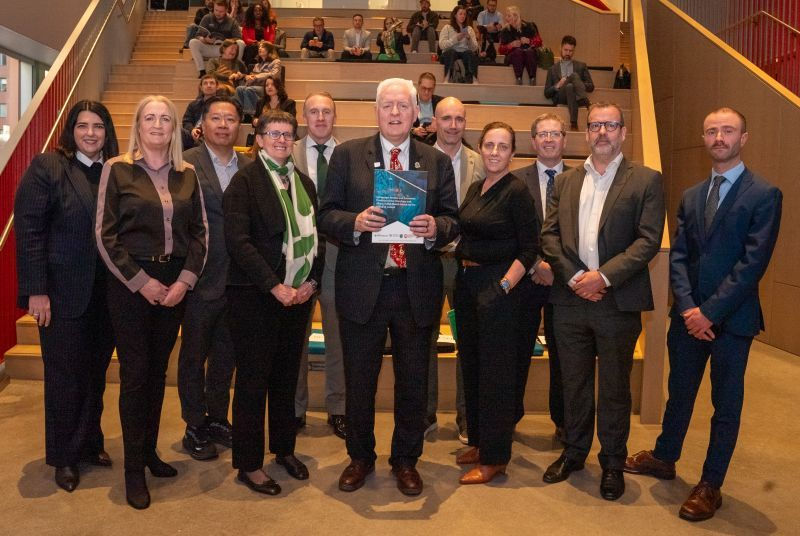The Impact of AI on Life Science Consulting: Shaping the Future of Hiring
- Chris Sannwald

- Jul 11, 2023
- 3 min read
The world's perception of artificial intelligence (AI) has undergone a remarkable shift. Once seen as a futuristic concept, AI is now a tangible force reshaping industries worldwide. In this blog, we explore the profound influence of AI on the hiring landscape within life science consulting. Join us as we dive into how AI is transforming hiring practices and shaping the future of this field.
Unveiling Insights and Empowering Consultants: The Profound Influence of AI in Life Science Consulting
AI is already demonstrating its value by optimising processes, and its potential is set to soar even higher. Over the next three to five years, AI will prove indispensable in revolutionising biopharma research and development (R&D), particularly in the realm of drug discovery. Companies are increasingly piloting AI projects and considering its implementation throughout the value chain.
Imagine AI as a trusted ally, armed with advanced algorithms and unparalleled capabilities. It can decipher vast amounts of data, uncover hidden patterns, and predict outcomes with astonishing precision. Like a skilled detective, AI unveils insights that elude human observation, enabling life science consultants to make groundbreaking recommendations and drive remarkable discoveries.
But AI's influence extends beyond data analysis. It seamlessly integrates into the daily routines of life science consultants, acting as a reliable partner. Natural Language Processing (NLP) acts as a linguistic virtuoso, swiftly extracting crucial information. Robotic Process Automation (RPA) takes charge of repetitive tasks, freeing up consultants' valuable time for strategic endeavours. Virtual assistants and chatbots become trusted companions, providing instant support and personalised experiences for clients.
Balancing Curiosity with Caution
While embracing AI in recruitment offers immense benefits, hiring and HR managers must proceed with caution. Recognising the diverse perspectives on AI, a balanced approach is necessary to move forward without hindering progress. McKinsey highlights concerns about systemic biases, privacy issues, intellectual property protection, content filtering, and accuracy verification that AI usage may raise.
For example, AI models like ChatGPT may occasionally provide inaccurate responses, leaving users without a means to challenge or question them, potentially leading to misleading outcomes.
Recent studies shed light on workers' sentiments regarding AI in hiring and monitoring. According to a Pew Research Center survey, most respondents opposed using AI in final hiring decisions, analysing employees’ facial expressions and tracking workers’ movements on the job.
Most importantly, two-thirds of respondents said they “would not apply for a job with an employer that uses AI to assist hiring decisions.” Yet, despite concerns about the use of AI, almost half of the respondents said AI “would be better than humans at treating all job applicants the same way.”
AI has become an indispensable tool for hiring managers, revolutionising the way they identify talent, make decisions, and shape the future of their organisations. However, as we venture further into the AI frontier, it is crucial for hiring managers to balance curiosity with caution.
Embracing AI in and Striking the Right Balance
The adoption of AI in life science consulting presents a world of possibilities. With its advanced algorithms and data processing capabilities, AI offers unparalleled insights, streamlines processes, and enhances decision-making. But with these opportunities come challenges that demand careful consideration.
As hiring managers, it is essential to maintain a curious mindset, embracing the potential that AI brings to the table. Stay informed about the latest advancements, explore new AI-driven tools, and continually seek ways to leverage AI to optimise your hiring practices. Be open to experimentation, pilot AI projects, and assess their impact on your organisation's recruitment processes.
However, caution should be exercised as you navigate the AI landscape. Recognise the limitations and potential risks associated with AI implementation. Take proactive steps to ensure transparency, fairness, and ethical practices in the use of AI algorithms. Be aware of biases that can inadvertently seep into AI systems and take measures to mitigate them. Strive to strike a balance between AI automation and human expertise, understanding that AI is a tool that should augment, not replace, human judgment and intuition.
In conclusion, the transformative potential of AI in life science consulting is undeniable. As hiring managers, your role is to embrace this potential while maintaining a cautious approach. Embrace curiosity as you explore the possibilities that AI offers, but remain vigilant and considerate of the ethical, privacy, and accuracy concerns associated with its adoption. By striking the right balance, you can harness the power of AI to propel your organisation to new heights, attracting top talent, making informed decisions, and driving innovation in the field of life science consulting.
For help with recruiting and qualifying the best candidate for your executive role, contact Cranmore today.




Comments